Welcome to the future! Or is it? The rise of artificial intelligence has been causing a lot of uncertainty lately, with people asking the same question: “Will AI Replace Humans?”
It’s like living in a sci-fi movie, where robots and machines take over our jobs, leaving us jobless and wandering the desolate wasteland.
But hold on a minute, is that really the fate that awaits us? Are we on the brink of an AI takeover, or will humans still have a place in the workforce?
This blog post will explore the uncertain fate of AI taking over jobs and shed light on the pros and cons of this technology. So buckle up, grab some popcorn, and let’s jump into the AI rollercoaster!
Table of Contents
The Future is Here: What Is Artificial Intelligence?
AI is a hot topic in the tech world and for good reason! It’s the ability of a machine to perform tasks that would normally require human intelligence.
Think of it like this: AI is to a computer what a superhero suit is to a person. It gives them powers they never had before!
There are three types of AI: Weak, Strong, and Super.
Weak AI is good at imitating human intelligence, like Siri or Alexa. Strong AI is like having a genius on your team, it can come up with new ideas and solutions all on its own.
And Super AI? It’s like having a superhero with the power to continuously learn and improve.
AI can process vast amounts of data, making it a valuable tool for businesses in today’s data-driven world.
Machine learning is a type of AI that allows a computer to learn without being explicitly programmed. It’s like having a student that never stops learning!
The possibilities for AI are endless and the future looks bright. Let’s dive in and see what exciting advancements are in store for us.
Here’s where AI is used in the real world:
- Self-driving cars
- Virtual personal shopping assistants
- Chatbots for customer service
- Fraud detection in banking
- Predictive maintenance in manufacturing
Artificial intelligence is the future and it’s here now. Let’s embrace it and see what amazing advancements it brings us!
A Short History of AI
AI has been a topic of fascination for centuries, but its roots can be traced back to the 1950s. Back then, computer scientists were working on developing computer programs that could mimic human intelligence. They called this new field “Artificial Intelligence”.
Fast forward to today and AI has come a long way. It’s used in a range of industries, from healthcare and finance to marketing and customer service. It’s even making its way into our homes with the advent of smart speakers like Amazon Alexa and Google Home.
Here are a few key milestones in the history of AI:
- 1956: The term “Artificial Intelligence” is coined at a conference at Dartmouth College.
- 1961: The first AI program, called the Logic Theorist, is created by Allen Newell and Herbert A. Simon.
- 1997: IBM’s Deep Blue defeats world chess champion Garry Kasparov, marking a major milestone in AI.
- 2011: Apple introduces Siri, a virtual assistant for the iPhone.
- 2016: Google DeepMind’s AlphaGo defeats the world champion in the ancient Chinese game of Go, a feat previously thought impossible for a machine.
From these early beginnings to today’s cutting-edge AI technology, the field of AI has come a long way. And while it may be uncertain what the future holds for AI, one thing is for sure: it’s already had a major impact on our lives and it’s only going to continue to do so in the future.
Will AI Take Over the Workforce?
The rise of Artificial Intelligence (AI) has taken the workforce by storm, and with companies like Amazon investing billions, it’s no surprise that the topic is at the forefront of many people’s minds.
The question remains: will AI completely take over our jobs? The answer is not so simple.
Here’s why:
- AI can automate repetitive tasks with ease, but it lacks the human touch.
- It can’t replace the creative and management skills that humans bring to the table.
- Some industries and job roles are more at risk than others.
Take digital marketing agencies, for example. The estimated risk of automation is around 4%. This means that while AI can help with certain tasks, it’s unlikely to fully replace human workers anytime soon.
But, with AI advancing every day, it’s understandable why many are feeling uncertain about their future in the workforce.
So, what can we do to stay ahead of the game?
Embrace the change and upskill! AI can’t replace the unique skills and qualities that make us human, but it can make our jobs easier and more efficient.
So, let’s work together with AI, not against it.
AI is here to stay and will certainly change the workforce, but it doesn’t necessarily mean the end of human jobs. It’s up to us to adapt and thrive in this new era.
The Impact of AI on Jobs: Will We Be Replaced?
The rise of artificial intelligence is shaking up the job market, and marketers are feeling the heat.
- “At Risk Jobs”: Jobs in digital marketing, customer service, and financial analysis are the most vulnerable to automation.
- “Safe for Now”: Certain roles like doctors, lawyers, nurses, and teachers will remain safe from automation… for now.
- “Money-Saving Machines”: Companies are investing big bucks into AI to increase productivity and save money. Goodbye human jobs in data entry and customer service.
But hold on, not so fast! AI may be able to automate repetitive tasks with ease, but it lacks the human touch. Creativity and management skills are traits that AI just can’t replicate.
So, will AI completely take over the workforce? The answer is complicated. Some jobs will be replaced, but others will remain untouched. It all comes down to the tasks involved and whether AI can perform them better than a human.
Let’s just say, the future is uncertain and the fate of jobs in the marketing world is up in the air. The only thing we know for sure is that AI is here to stay and we better buckle up for the ride.
What are the Pros and Cons of AI Replacing Humans?: A Dilemma with No Easy Answers”
-Pros-
- AI can help solve complex problems, like medical diagnosis and weather forecasting.
- AI can reduce human errors, making decisions faster and more accurately.
-Cons-
- AI can’t understand or respond to human emotions, essential in jobs like customer service and creative writing.
- AI can replace human jobs, especially in fields like manufacturing and customer service where it can learn to be more efficient than humans.
As marketers, it’s crucial to understand the impact AI is having on our industry and jobs. The pros and cons of AI replacing humans are a dilemma with no easy answers.
While AI may bring improved efficiency and accuracy, it also raises concerns about job security and the role of human interaction in our work. Let’s keep a close eye on this evolving technology and its impact on our future careers.
How Can We Prepare for the Possibility of AI Taking Over Jobs?
Are you ready for the AI takeover?
Some companies like Amazon have already started prepping their employees for the possibility of AI taking over jobs, but the truth is, we still don’t know exactly what the future holds. As the world races towards automation, it’s important for businesses to start thinking about how they can stay ahead of the curve.
But don’t panic just yet! The transition to a fully automated workforce is likely to be a slow and gradual process. So, how can we prepare for the uncertain fate of AI taking over jobs?
Here are a few key steps to consider:
- Embrace the power of human and AI collaboration: By combining human expertise with AI technology, businesses can maximize their productivity levels and overcome the challenges of each sector.
- Free up your employees: Let AI handle the time-consuming tasks, so your employees can focus on more challenging and creative work.
- Plan for the future: The world is constantly changing, and AI is no exception. Businesses should have a plan in place to adapt and thrive in a world where AI plays a larger role.
Are you ready to face the AI revolution head-on? It’s time to get strategic and start preparing for the uncertain fate of AI taking over jobs!
Machine Intelligence vs. Human Intelligence
Are you ready to face the future where machines and humans compete for jobs?
It’s time to understand the battle between Machine Intelligence (AI) and Human Intelligence.
Here’s a breakdown of the two:
- AI is like a robot ninja, mastering tasks with lightning speed and precision.
- On the other hand, human intelligence is like a shape-shifting superhero, adapting to any situation with ease.
Sure, AI may outperform humans in speed, efficiency, and accuracy, but humans have the upper hand when it comes to decision-making in uncertain situations.
But don’t worry just yet! The transition from human to machine intelligence will be a slow one. And remember, some tasks are better suited for humans, while others are better left to the robots.
It’s time to arm yourself with knowledge and understand the strengths and weaknesses of both AI and human intelligence. Are you ready?
The Rise of Augmented Intelligence: Helping Humans Soar to New Heights
Artificial intelligence (AI) is rapidly changing the world as we know it, and the rise of augmented intelligence is taking things to the next level!
What is Augmented Intelligence?
Think of it as the perfect partnership between man and machine. Augmented intelligence combines human and machine intelligence to make machines even more powerful and efficient.
Why is Augmented Intelligence Important?
It’s simple! AI is designed to help humans tackle tasks that are too difficult or time-consuming for us to handle on our own, such as playing the piano or even driving a car. In industries like healthcare, finance, and retail, AI can enhance our abilities and improve our productivity.
The Potential of Augmented Intelligence
The possibilities are endless! Augmented intelligence has the potential to revolutionize countless industries, from manufacturing to education. With AI, we can automate processes, make better decisions, and analyze complex data sets like never before.
But Wait, There’s More!
It’s not all sunshine and rainbows, though. AI isn’t a magic “black box” that always makes everything better. In some cases, it can do more harm than good, like taking away jobs or causing a techlash.
That’s why it’s important to be aware of both the benefits and risks of AI so we can make informed decisions about its impact on society.
So, Will AI Replace Humans? The truth is, no one really knows. But, one thing is for sure, augmented intelligence is here to stay, and it’s up to us to decide how we want to use it.
Human + Machine: Reimagining Work in the Age of AI
AI is a technology that can revolutionize the way we work and live. It has the potential to replace human intelligence in certain tasks, such as understanding natural language or visually assessing a scene for a specific object.
However, artificial intelligence is not a silver bullet – it needs to be integrated with human intelligence to ensure a successful and impactful outcome. Additionally, artificial intelligence cannot perform tasks that require human intelligence, such as making decisions or judgments.
To truly reap the benefits of AI while ensuring a safe and effective workplace, it’s critical to incorporate both artificial intelligence and human intelligence into a project’s workflow.
AI robots can be used for repetitive tasks and generate their own optimal decisions based on learning from past experiences. In addition, human workers can step in to perform tasks that require human intelligence, such as making decisions or judgments.
By integrating artificial intelligence into a project’s workflow, businesses may be able to improve efficiency and achieve a better output with less effort.
Overall, artificial intelligence has the potential to revolutionize the way we work and live and it is essential that businesses continue innovating to maximize its benefits while minimizing risks.
Collaborative Intelligence: Humans and AI Are Joining Forces
AI has evolved to encompass machine learning, natural language processing, data, and industrialization that can help companies reach their goals.
One of the best ways to leverage this technology is by combining human and artificial intelligence talent in a collaborative effort. This can result in a more efficient and accurate intelligence that can further improve a company’s operations and productivity.
An example of this collaboration in action is seen in the 2005 “freestyle” chess tournament, where a pair of amateur American chess players using three computers defeated a team of professional chess players using human intelligence only.
Their victory was a testament to the power of human-AI collaboration as they were able to leverage the power of their machines to achieve results beyond what could have been achieved by either human or machine alone.
How to Prepare for AI in the Job Market
Companies are retraining their employees to accommodate for AI advancements in the workplace through voluntary programs like Amazon’s “Upskilling 2025”. This program encourages workers to upgrade their skills as a part of a concerted effort to prepare for AI-related job automation.
Business owners should also gain a deep understanding of their operations to identify opportunities for AI to supplement their workforce. As artificial intelligence becomes a part of our daily lives, it’s important for everyone to have a basic understanding of the technology and its potential impact on the jobs market.
AI is being constantly developed and integrated into our daily lives to automate processes and enhance efficiency. It is used in softwares such as bookkeeping and data entry to reduce costs and reduce human error.
In education, artificial intelligence can help educate students in ways that are more individualized and engaging. As artificial intelligence becomes more sophisticated, it has the potential to contribute significantly to human welfare, but it will take time for its full potential to be realized.
What real-world problems can machine learning address? AI: Revolutionizing the Way We Work!
Have you ever wanted to get rid of repetitive, mundane tasks at work? Enter AI! Machine learning is the answer to your prayers. It can automate processes, making jobs more efficient and freeing up time for more creative and strategic thinking.
Think of AI as a trusty sidekick. Imagine having a robot that can do the heavy lifting while you focus on the fun stuff. AI can mimic human intelligence and take on tasks that require human-like decision making, such as recognizing faces, voices, or even writing a piece of text.
“AI’s Superpowers: What Can it Do?”
- Image recognition: A computer can be trained to recognize specific features in photos and categorize them into objects or events.
- Problem solving: AI is a tool for solving problems and can learn new skills, taking on challenges previously thought impossible for machines.
“But Wait, There’s More!”
While AI is incredibly advanced, it’s not perfect. It can’t mimic human intelligence perfectly just yet. But the future looks bright for AI and its role in industries and jobs. So, no need to worry about robots taking over the world just yet!
Skills Needed to Thrive in the Age of AI
The age of artificial intelligence (AI) is approaching. As a result, businesses and workers alike must prepare for a new era in which machines can think, learn, and work like humans. To thrive in this environment, you’ll need a variety of skills. You’ll need mathematical, critical thinking skills, creative and problem-solving skills to navigate the changing landscape of jobs.
You’ll also need a variety of soft skills, like emotional intelligence, people management, attention to detail, and empathy.
These are essential for creating a successful career that balances creativity with analytical thinking. In addition to these skills, you must develop a sense of purpose and a keen awareness of the impact your decisions have on the world around you.
Industries That Will Always Need Humans and The Future of Work: AI and Humans, Working Together!
Fear not, dear humans! Some jobs may be lost to automation, but new jobs will be created as well.
There are certain industries where humans will always be in demand:
- Creative fields like art, design, and journalism
- Empathetic jobs like nursing and teaching
- Tasks requiring human-level intelligence such as strategy in finance or politics
- And let’s not forget, jobs that haven’t even been created yet!
The key to success in this new era of work is collaboration between humans and machines. Augmented intelligence, where humans and machines work together to achieve more, is the way of the future.
HR managers have an important role to play as well. After all, robots can crunch numbers and analyze data, but they just can’t understand human emotions. So, it’s up to us humans to manage interpersonal conflict and make sure everyone is happy and productive.
Bottom line: Automation is a win-win for human workers and tech-savvy workers alike!
The Benefits of AI in the Workplace
AI can help save a lot of time for workers by taking over tasks that are repetitive and tedious. This has a positive impact on efficiency, potentially leading to shorter work weeks.
However, AI cannot replicate human creativity or manage a company’s business, so it cannot replace humans in all jobs. For example, some roles are at a higher risk of automation than others, such as data entry and customer service.
A human touch is still a vital element in these jobs, which makes them worth keeping for now. Overall, AI has the potential to revolutionize the workplace and affect workers in many ways but hasn’t been fully realized yet.
Is There Hope for Human Workers in a Post-AI World?
According to data and reports on the Internet, 47% of American jobs are at high risk by the mid-2030s due to automation.
A.I. has the potential to displace existing jobs and increase unemployment. While automation may replace some jobs, it also has the potential to create new ones and increase efficiency. This can lead to a more prosperous society that benefits everyone.
Even with a rise in artificial intelligence, there will still be many jobs that need human labor and creativity. For example, a creative field requires a human touch in order to produce great ideas and art. A complex political or strategic job requires a human’s understanding of how the world works.
And a job that requires empathy or understanding won’t be able to be done by an artificial intelligence alone. A.I. can help humans better their skills and learn new things, but it cannot ever fully replace a human worker in every job out there.
Frequently Asked Questions
Can AI be a threat to humanity?
Yes, there are some risks associated with artificial intelligence. For example, AI can take over certain jobs, leading to an increase in unemployment.
In a similar vein, AI algorithms can be used to manipulate social media and other online services, leading to a lack of security and privacy.
AI can also be used to solve complex tasks faster and more efficiently than humans, potentially leading to a future in which humans become obsolete.
At a time when AI is being explored and developed in many different ways, there is a lot of concern that it could pose a threat to humanity in the future. However, there is no evidence to support this claim yet.
For one, AI has the potential to replace some human jobs. This can lead to increased unemployment rates, as fewer people will be needed to perform certain tasks.
Moreover, AI is being used to predict viruses and find vaccine combinations. This adds to its capabilities and makes it more efficient and effective at its job.
Furthermore, AI cannot replace human intelligence as it requires humans to control and direct the use of such technology. In turn, this makes it vulnerable to misuse or malfunctioning.
AI also has the potential to manipulate social media, compromising privacy and security. Additionally, it could surpass human intelligence and complete tasks in a shorter time than a human.
Therefore, while there are concerns that AI may pose a threat to humanity in the future, there is currently no evidence to support this claim.
Are humans soon to be replaced by robots?
This is a highly debated topic among experts, with some predicting that robots and AI will soon replace a significant number of blue- and white-collar jobs, while others predict that they will create more jobs than they take.
To date, AI can only replicate certain human tasks, like solving complex problems or learning from data. While this is a big step in the right direction, it’s not currently enough to replace a human mind.
As a result, AI is expected to replaced humans in certain jobs, but is not expected to create an apocalyptic machine-driven future. In fact, many experts believe that automation and robotics could increase income inequality and create a mass of virtually unemployable people.
Are humans soon to be replaced by robots?
There is a lot of debate surrounding whether or not robots and artificial intelligence (AI) will eventually replace human workers. However, a majority of experts interviewed by Pew Research believe that this will happen.
One of the main reasons for this belief is that AI can be used to design and create intelligent machines that can perform human-like tasks. But AI is not capable of replicating a human mind entirely.
In addition, a study conducted by Oxford University has shown that although 1.7 million jobs have been lost due to automation since 2000, it is predicted that 97 million new jobs will be created by 2025 as a result of the growth of AI. This means that, in the long run, automation will actually benefit the economy and job market.
Are there any dangers associated with widespread adoption of AI?
There are some fears associated with widespread adoption of AI, but they’re mostly based on a lack of understanding of the technology.
For example, a major concern is that AI may replace human customer service workers. However, IVAs (Intelligent Virtual Agents) don’t have the emotional intelligence or rapport that humans do, which means they may not be able to handle difficult customer service scenarios effectively.
Additionally, automation has made many mundane tasks more efficient – like accounting and finance – but this comes with a fear that robots will take over these jobs and eliminate human jobs altogether.
AI is still limited in its capabilities, and is not yet capable of replacing humans in all jobs. While it has revolutionized a number of industries, including healthcare and transportation, it’s still a new technology that needs to be improved upon.
For the time being, humans are still necessary for most jobs – even if they do have limitations compared to artificial intelligence in specific fields.
How much will AI change our lives, and how fast will it happen?
AI is expected to replace a whopping 85 million jobs by 2025 according to the World Economic Forum. This number is based on a study that found that a majority of jobs in the United States could be eliminated through the use of artificial intelligence.
In addition to this, AI technology is becoming increasingly accessible and could soon put many humans out of jobs. For example, 50% of all jobs will be automated by AI within 15 years, according to AI expert and CEO of Sinovation Ventures Kai-Fu Lee.
What this means for workers is that they may need to undergo training in order to keep their jobs, or may even need to learn new skills altogether in order to stay relevant in the workforce.
However, AI will also have a huge impact on both specially trained workers and blue collar workers. For instance, AI is being used to predict viruses, find vaccine combinations, and help people with virus treatments. In fact, some experts believe that by 2035 human error will be a thing of the past thanks to machine learning.
So overall, it’s safe to say that AI will change a lot of things in our lives in the near future!
Are there any downsides to using artificial intelligence in our daily lives?
There are a few potential downsides to using artificial intelligence in our daily lives.
Firstly, some people may be uneasy about the potential risks artificial intelligence may present to human safety and well-being. For example, it is argued that while AI can assist us in automating our world and enhancing the efficiency of jobs, it cannot replicate the human emotion or ability to make decisions based on data and instinct.
Additionally, it is possible that artificial intelligence will eventually replace human jobs. While this could be a good thing in the long run, it could also lead to an uncertain future for many workers currently employed in those fields.
What are the benefits of AI?
There are a lot of benefits to AI, and here are a few to get you started:
1. AI can automate repetitive tasks with expertise and accuracy. This can save a lot of time and money in the long run.
2. AI can help in decision making and problem solving. It can provide better insights that humans may not be able to do on their own.
3. AI can be used for data analysis and pattern recognition to provide better insights. This can help improve efficiency and customer service, among other things.
4. AI can reduce costs and save time. It can help solve problems faster and save you money in the long run.
How can AI help my business?
When it comes to using AI in your business, there are a number of ways in which it can help you. It can help to automate repetitive tasks, respond to customer queries, provide automated responses, carry out specific tasks with expertise, and more.
However, before you start deploying AI in your business, it’s important to do your research and assess the potential benefits that it could bring. Depending on the type of business you have and the functions that you want AI to support, there are a variety of ways in which AI can help you.
Will artificial intelligence replace humans in the near future?
There is a lot of debate on the topic of whether artificial intelligence will eventually displace a significant number of human jobs. However, there are a few points that should be kept in mind while debating this issue.
First of all, artificial intelligence has become a reality in our daily lives and we are now starting to see self-driving cars, chatbots, and robotic surgery. All of these examples demonstrate how AI can help us in various ways.
Second, experts are divided on the question of whether robots and AI will displace a significant number of human jobs. Some believe that this could happen soon, while others think that it may not happen for a long time.
Lastly, artificial intelligence cannot replace humans because it lacks the creativity and flexibility of human intelligence. While AI may supplement and enhance human capabilities, it is unlikely that it will replace people altogether.
Is there any way to avoid being replaced by AI in the near future?
There is no easy answer when it comes to avoiding being replaced by AI in the near future. While there are a few things that you can do to help, such as developing skills that AI cannot currently replace (such as critical thinking, problem solving, and creativity), ultimately it is up to human intelligence to determine how successful or unsuccessful we will be in this race against artificial intelligence.
One potential reason why AI may eventually replace human intelligence is because artificial intelligence is growing increasingly sophisticated. For example, artificial intelligence can already replace humans for certain jobs, such as autonomous cars. In the future, AI may even become able to completely replace human intelligence.
However, at this point in time AI still lacks the ability to understand feelings and emotions which are necessary for many tasks, including creative tasks. So, while AI may eventually overtake human intelligence in some areas, it is still likely that human intelligence will remain dominant in a vast majority of tasks.
What are some common misconceptions about AI and how does it differ from human intelligence?
Some common misconceptions about artificial intelligence (AI) and how it differs from human intelligence are as follows:
1. AI is often understood to be capable of replacing human intelligence, but this is not the case. AI is limited to pre-defined tasks and cannot think independently.
2. AI is often seen as a single entity when in reality there are multiple types of AI, including weak AI, strong AI, and super AI. Weak AI is limited to performing one task, while strong AI is capable of executing any intellectual task a human can.
3. AI is not able to make any decisions without being programmed and explicitly told what to do.
Does a person’s education or personality make a difference when it comes to jobs that will be automated by AI in the near future?
Yes, a person’s education and personality can make a difference when it comes to jobs that will be automated by AI in the near future.
AI technologies are gradually replacing human labour across certain industries. This means that robots, artificial intelligence, and other machine-based systems can learn tasks more quickly and accurately than a human workforce.
However, AI cannot replace human creativity and management, which means that a human’s intuition, problem solving skills, and judgement are still required for some jobs that may be impacted by automation in the future.
Despite AI’s potential to replace certain jobs, the Bureau of Labor Statistics forecasts faster-than-average job growth in many occupations that AI is expected to impact.
So even if a large percentage of jobs are eventually automated, the number of people employed in those jobs is likely to grow at a faster rate than the overall unemployment rate.
How can you prepare for the AI revolution?
Preparing for the AI revolution can be a daunting task, but by understanding your business and making a few strategic moves, you can be on your way to a successful future.
Here are a few steps that you can take to get started:
1. Understand your operations and identify opportunities for AI in your business. This includes mapping out a clear plan for how AI can help you streamline processes and optimize performance.
2. Consider retraining existing staff for technical roles related to AI. If you already have a workforce of human employees, then retraining them in AI-related skills may not be a necessary step. However, if you have a workforce of machine workers, then training them in artificial intelligence may be a good idea in order to keep up with current market trends and ensure continued customer service.
3. Invest in AI technology to automate time-consuming jobs and allow your employees to focus on more advanced tasks. By using AI technology, you can reduce the amount of time employees spend on tasks that are less desirable or unnecessary. This also allows them to dedicate their time and energy towards more pressing matters within the company.
4. Combine AI technology with the expertise of your human workforce to get the most out of each process.
Are humans and machine really in competition with each other though?
While humans and machine may be in competition with each other, they are actually effective when working together.
Machines are fast, more accurate, and consistent, but lack intuition, emotion, and sensitivity. These three qualities make humans a better fit for certain tasks that require quick decisions, accuracy, or consistency.
Humans and machines working together can bring about greater success than either working alone. This is because humans are intuitive and emotive which makes them better at sensitive tasks like detecting problems or understanding human emotions. In addition, teams composed of human and machine workers can help to overcome any biases that might exist within them.
Leaders in the future will need to be trained to create inclusive teams by aligning man and machine. Doing so will help to prevent any tensions or misunderstandings from arising.
Conclusion
The artificial intelligence revolution is a reality. There will always be a need for human workers, but AI is making a huge impact on a variety of industries and professions.
To remain competitive in this new age, organizations must invest in AI solutions that allow workers to do their jobs faster and better. Comment below and let us know what jobs you think are safe in the age of AI!
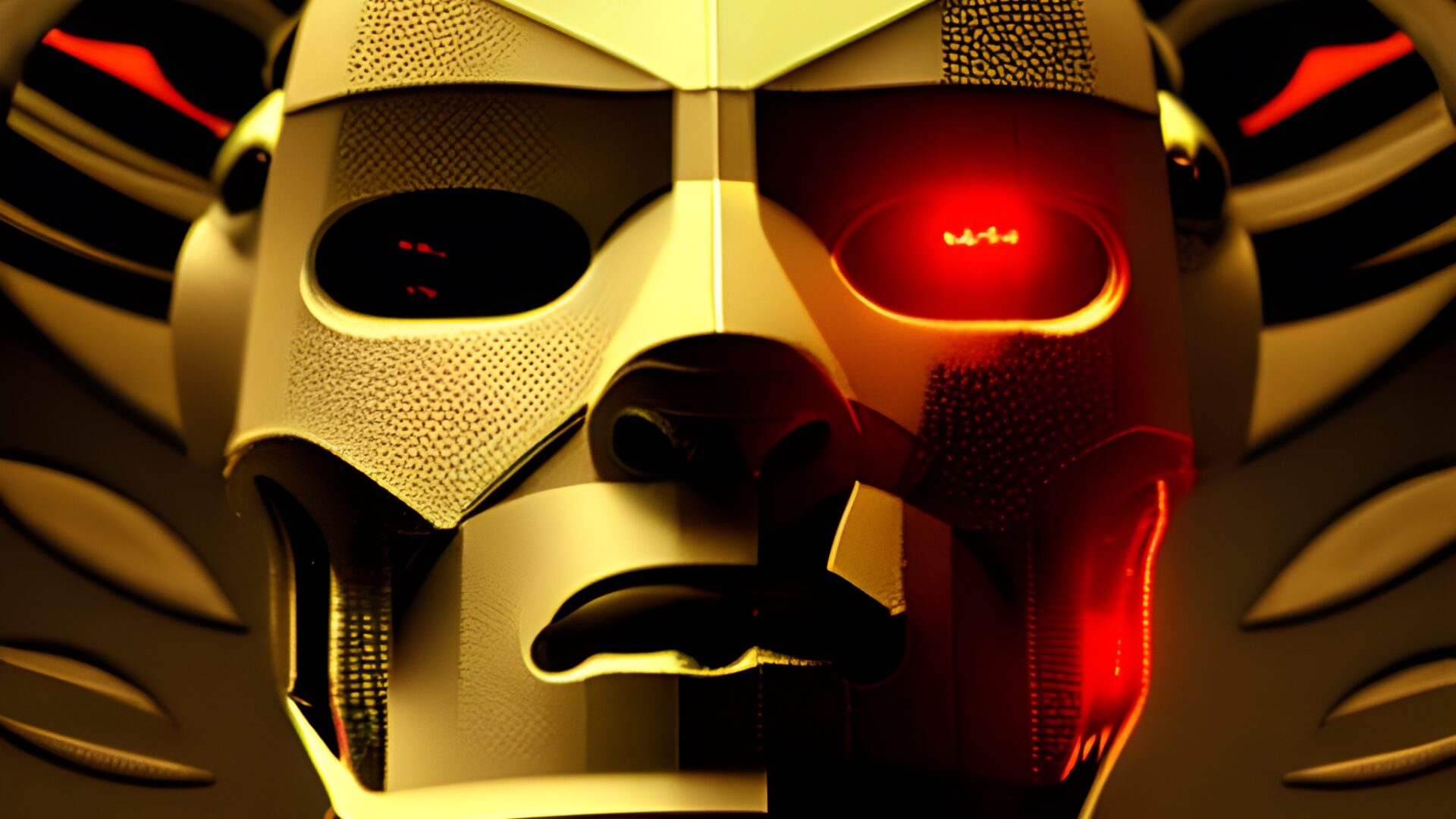
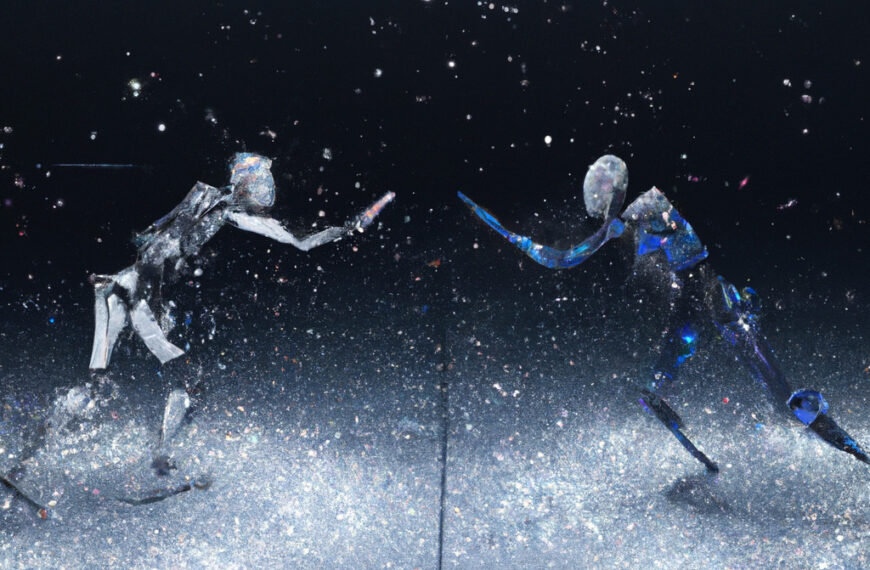
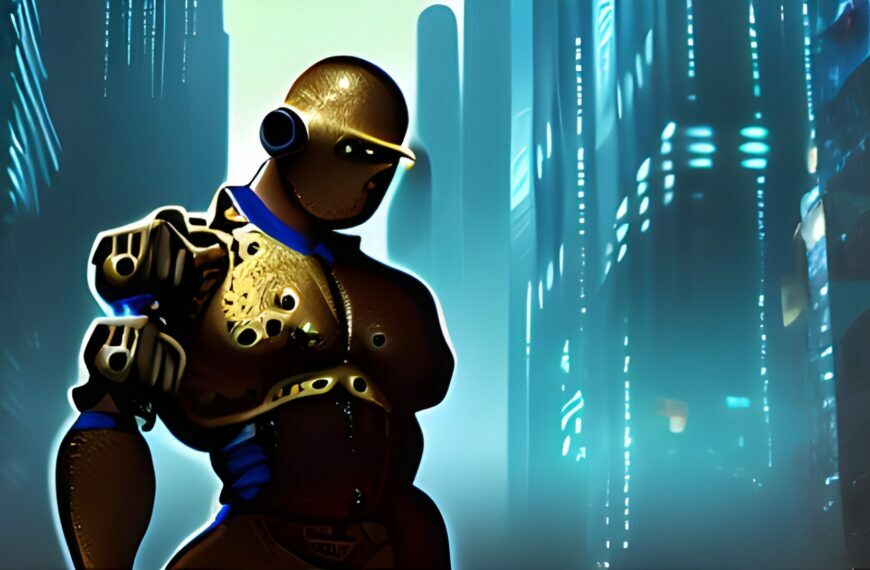
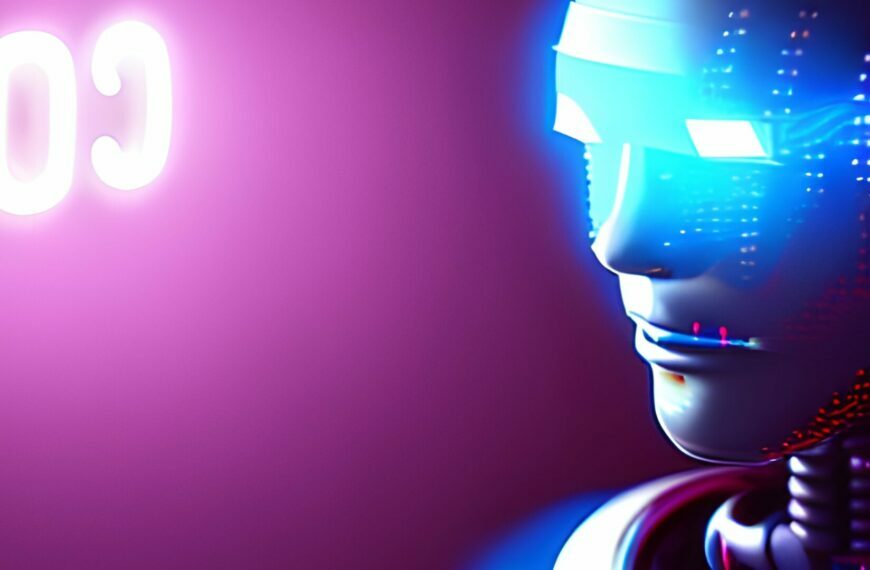
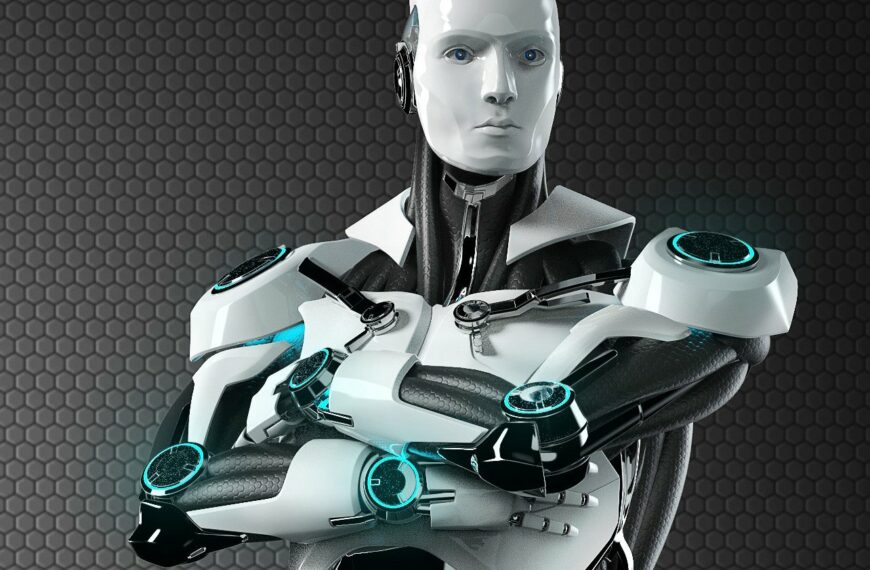
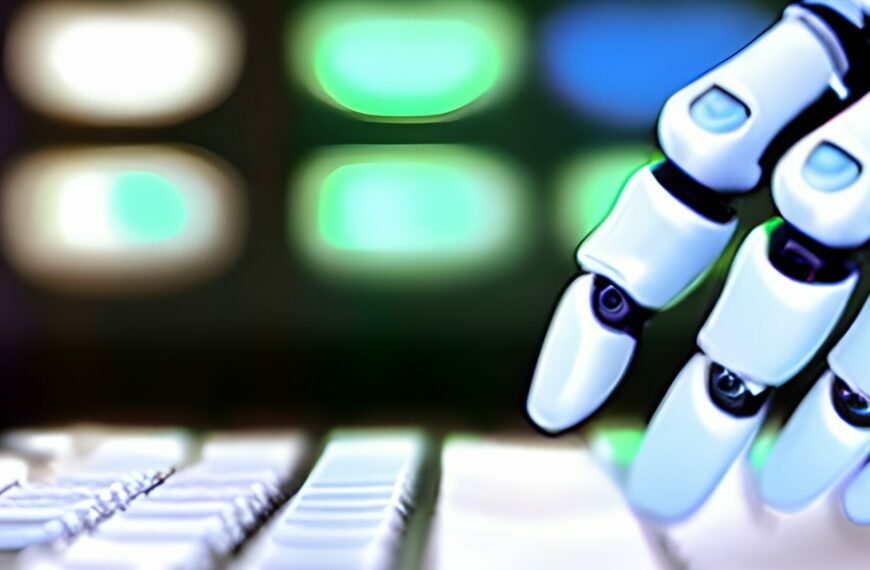
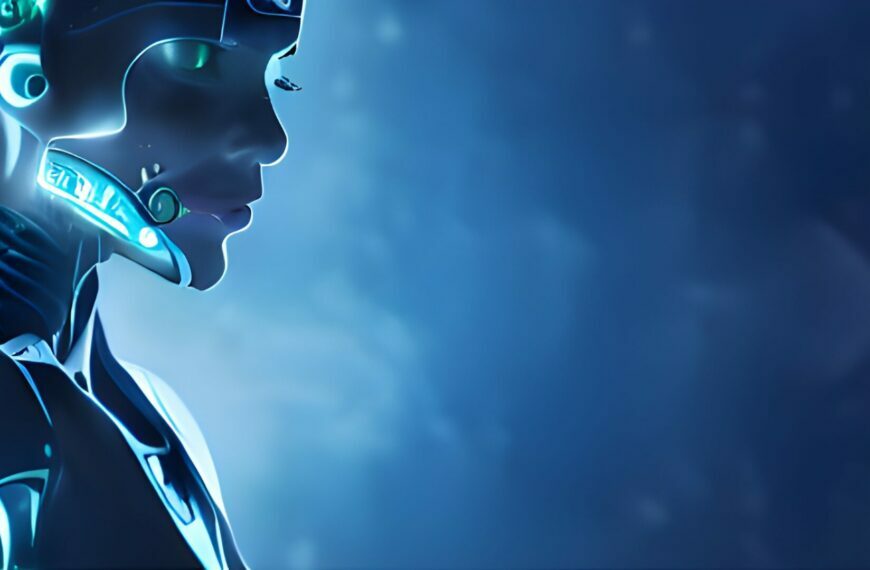
Leave a Reply